
The journey of pregnancy is one of the most incredible experiences, filled with anticipation and excitement. From the moment of conception, a tiny embryo starts its incredible transformation, developing into a fully-formed baby over the course of nine months. Let’s take a moment to talk about this remarkable experience, exploring the week-by-week development of a baby in utero, highlighting the amazing milestones and changes that occur during this period of growth.
Understanding the Week-By-Week Development of Your Baby
Weeks 1-4: The Miracle of Conception and Early Cell Division
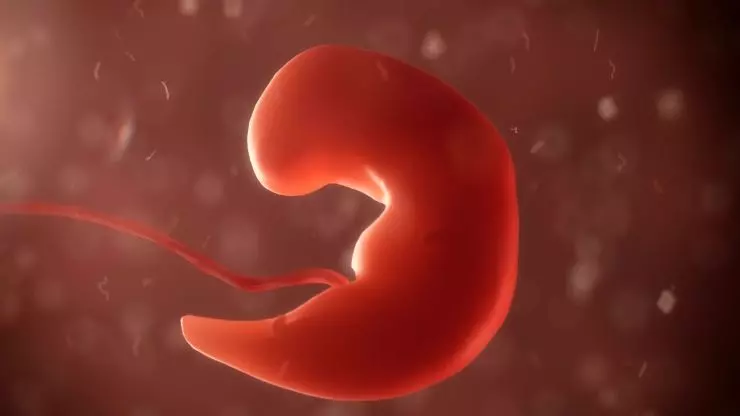
During the first four weeks, the fertilized egg, known as a zygote, undergoes rapid cell division. It travels through the fallopian tube and implants itself in the uterine lining. The neural tube, which will eventually develop into the baby's brain and spinal cord, begins to form. The heart also starts to beat, laying the foundation for the baby's circulatory system.
During this time many women may not experience any noticeable symptoms. However, some common early signs of pregnancy can include breast tenderness, fatigue, mild cramping, and slight spotting or light bleeding, known as implantation bleeding.
Weeks 5-8: Formation of Vital Organs and Basic Body Structures
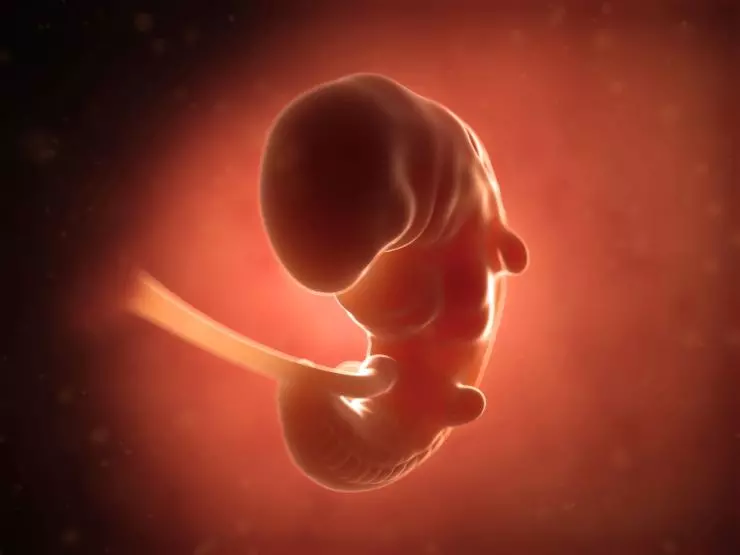
At this stage, the embryo starts to take shape. The head, body, and limb buds become more defined. The facial features, including the eyes, nose, and mouth, start to form. The major organs, such as the heart, liver, kidneys, and lungs, begin to develop, although they are not fully functional yet. The embryo starts to move, although these movements are not yet felt by the mother. The embryo will measure about 1 inch (2.5 centimeters) in length and resemble a tiny human.
It is during this time that symptoms of pregnancy will likely begin like morning sickness, increased urination, fatigue, emotional changes, etc.
Weeks 9-12: Rapid Growth and Refinement
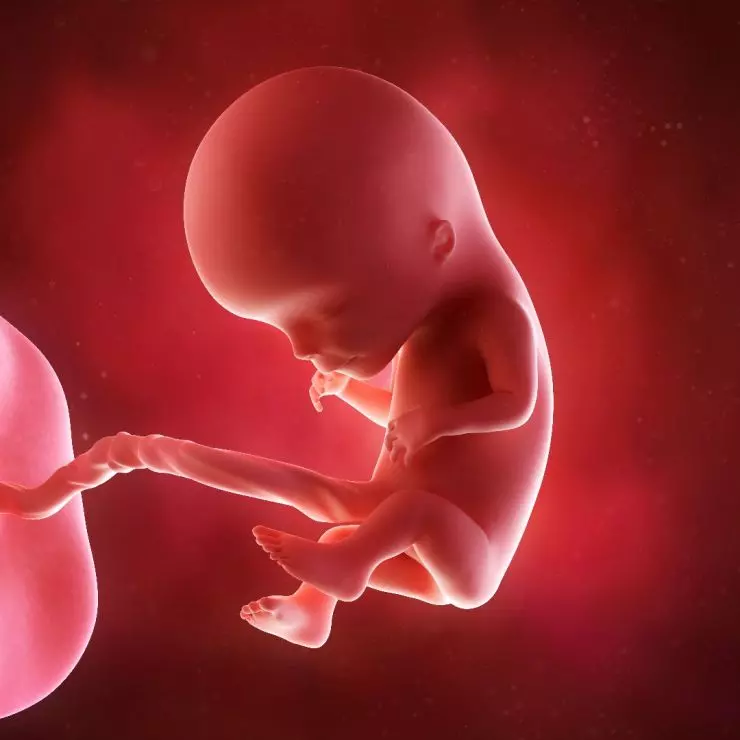
During this period, the embryo undergoes a growth spurt. It is now called a fetus and marks the end of the first trimester. Facial features become more distinct, and the external genitalia begin to differentiate, although it may still be difficult to determine the baby's sex through ultrasound. The fetus starts to swallow and produce urine. Muscles and bones continue to develop, allowing for more coordinated movements. By the end of the 12th week, the fetus will have grown to around 2.5 to 3 inches (6 to 7.6 centimeters) in length.
It is around week 12 when many women may begin to see a noticeable baby bump. The uterus expands and becomes more noticeable as it rises out of the pelvic cavity.
Weeks 13-16: Developing Senses and Movement
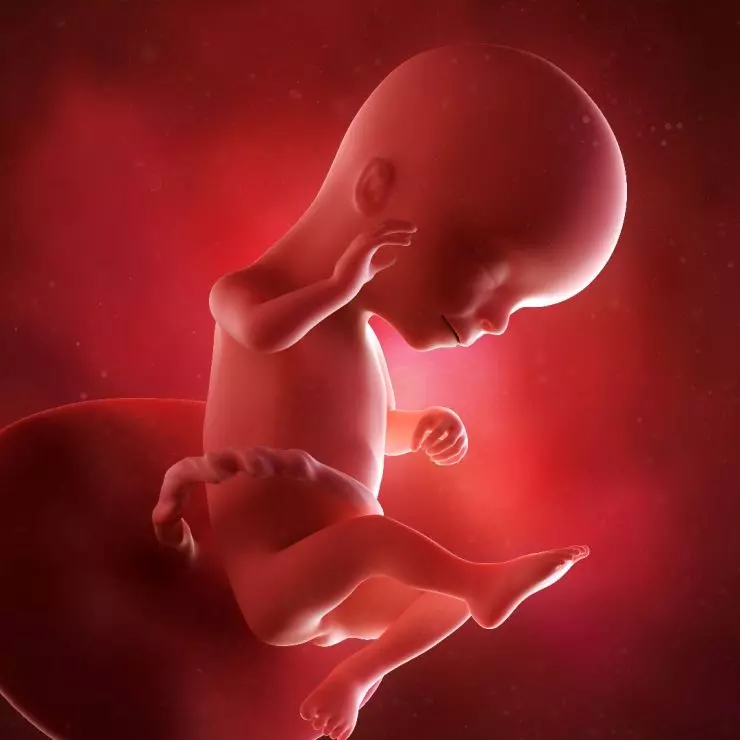
By the end of the fourth month, the fetus is approximately four to five inches long. Fine hair, called lanugo, starts to cover the body, and the skin becomes less transparent. The baby's hearing develops, and they can hear sounds from the outside world, including their mother's voice. The fetus can make sucking motions and may be seen sucking their thumb during an ultrasound.
During this time many mothers will begin to feel the baby move while mom’s baby bump continues to grow. For first time mothers, sometime they may not notice movements yet.
Weeks 17-20: Growing Strong and Active
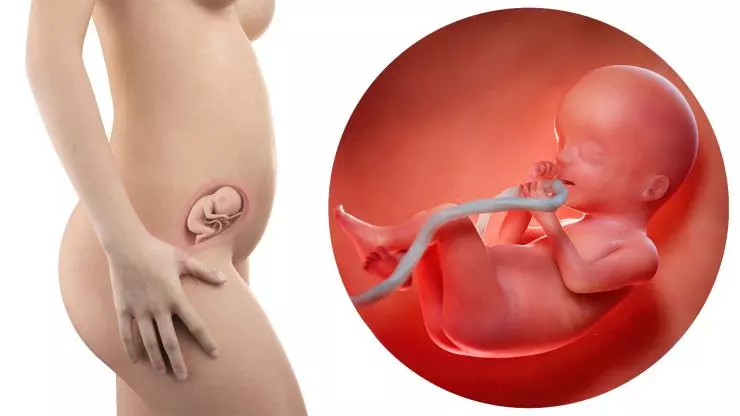
During this stage, the baby's movements become more noticeable to the mother, as the fetus strengthens and grows. Vernix, a protective waxy substance, covers the skin. The baby's taste buds develop, and they may even be able to taste the amniotic fluid. Eyebrows and eyelashes form, and the baby's heartbeat can be heard using a stethoscope.
Mom will begin to steadily gain weight during this time and feel more regular movement of baby as her belly continues to grow.
Weeks 21-24: Developing Brain and Sensory Systems
The baby's brain undergoes rapid growth, and the nervous system becomes more developed. The lungs continue to mature, and they may even begin developing taste buds. Eyelids, previously fused, now open, and the eyes can blink. The fetus can perceive light and darkness, and their sense of touch becomes more refined.
By week 21, your baby weighs around 10-13 ounces (280-370 grams) and measures about 10-12 inches (25-30 cm) in length.
Weeks 25-28: Gaining Weight and Preparing for Life Outside the Womb
During this period, the baby's growth rate increases, and they start to accumulate fat under the skin, providing insulation and energy reserves. The lungs continue to develop, and they may start to practice breathing movements. The baby's brain is rapidly developing, and their senses, such as hearing and vision, are becoming more refined.
By week 25, your baby weighs around 1.5 to 2 pounds (700 to 900 grams) and measures about 13-15 inches (33-38 cm) in length. Additionally, Baby’s movements become more vigorous, and their kicks and punches can be felt by the mother. While Baby grows Mom may continue to feel more symptoms like low back and pelvic pain, weight gain, emotional changes, Braxton Hicks contractions, heartburn, etc.
Weeks 29-32: Refining Body Systems and Gaining Immunity
As the baby's body systems mature, they begin to regulate their body temperature. The bones continue to harden, and the baby's skin becomes less wrinkled as fat deposition increases. The immune system starts to develop, and the baby receives antibodies from the mother, providing them with some level of immunity after birth.
By week 29, your baby weighs around 2.5 to 3.8 pounds (1.1 to 1.7 kilograms) and measures about 15-17 inches (38-43 cm) in length. In addition, to all the symptoms above Mom also may begin experiencing swelling and retaining fluid.
Weeks 33-36: Final Preparations for Birth
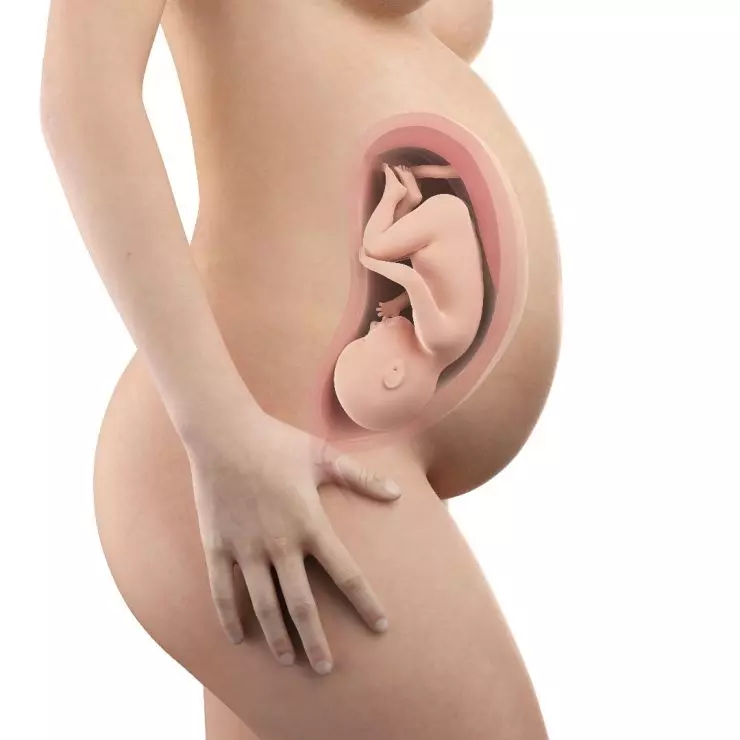
During this stage, the baby's growth slows down as they prepare for birth. The baby's head moves downward into the pelvis in a process called "engagement." The baby practices breathing movements and may have periods of sleep and wakefulness. At this stage, your baby's bones are fully developed, and their organs are functioning, preparing for life outside the womb.
By week 33, your baby may weigh around 4 to 6 pounds (1.8 to 2.7 kilograms) and measure approximately 17-19 inches (43-48 cm) in length. Mom may begin experiencing increased discomfort with symptoms intensifying.
Weeks 37-40+: Ready to Enter the World

By week 37, the baby is considered full-term and ready to be born. However, some babies may require a little more time to fully develop. The lungs are mature, and the baby is gaining weight. The amniotic fluid decreases, and the baby settles into a head-down position in preparation for birth.
Mom, get ready to welcome your new baby into your arms.
Importance of Regular Doctor Visits During Pregnancy
Whether this is your first or fourth pregnancy it is vital that you attend all of your regular, prenatal doctor appointments. These appointments are critical for monitoring mom and baby and potentially catching any issues early when they are most treatable in most cases. During these visits your doctor not only will monitor mom and baby’s physical health, but they are your number one resource for any questions you may have.
Whether you are planning on becoming pregnant or are pregnant and in need of an OB we are here to help. View our physicians and book your appointment today.